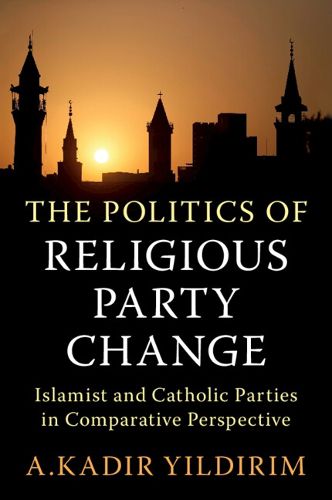Readings Newsletter
Become a Readings Member to make your shopping experience even easier.
Sign in or sign up for free!
You’re not far away from qualifying for FREE standard shipping within Australia
You’ve qualified for FREE standard shipping within Australia
The cart is loading…






The Politics of Religious Party Change examines the ideological change and secularization of religious political parties and asks: when and why do religious parties become less anti-system? In a comparative analysis, the book traces the striking similarities in the historical origins of Islamist and Catholic parties in the Middle East and Western Europe, chronicles their conflicts with existing religious authorities, and analyzes the subsequently divergent trajectories of Islamist and Catholic parties. In examining how religious institutional structures affect the actions of religious parties in electoral politics, the book finds that centralized and hierarchical religious authority structures - such as the Vatican - incentivize religious parties to move in more pro-system, secular, and democratic directions. By contrast, less centralized religious authority structures - such as in Sunni Islam - create more permissive environments for religious parties to be anti-system and more prone to freely-formed parties and hybrid party movements.
$9.00 standard shipping within Australia
FREE standard shipping within Australia for orders over $100.00
Express & International shipping calculated at checkout
The Politics of Religious Party Change examines the ideological change and secularization of religious political parties and asks: when and why do religious parties become less anti-system? In a comparative analysis, the book traces the striking similarities in the historical origins of Islamist and Catholic parties in the Middle East and Western Europe, chronicles their conflicts with existing religious authorities, and analyzes the subsequently divergent trajectories of Islamist and Catholic parties. In examining how religious institutional structures affect the actions of religious parties in electoral politics, the book finds that centralized and hierarchical religious authority structures - such as the Vatican - incentivize religious parties to move in more pro-system, secular, and democratic directions. By contrast, less centralized religious authority structures - such as in Sunni Islam - create more permissive environments for religious parties to be anti-system and more prone to freely-formed parties and hybrid party movements.